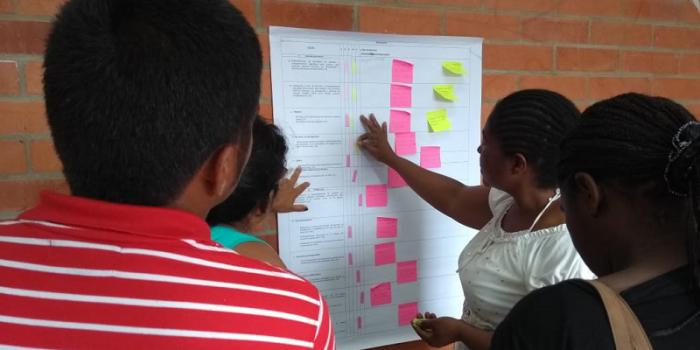
Returned or relocated population in Urabá and Darién will benefit from the Accompaniment Schemes
There are around 141 Special Family Support Schemes (EEAF), which seek to strengthen initiatives for the generation of income of the displaced population, within the protocol of returns and relocations of the Victims Unit.

In the municipalities of Apartadó (Antioquia) and Acandí (Chocó), 141 families were targeted through the Special Family Schemes, by the Victims Unit, to receive endowments and supplies, within the framework of the route of returns and relocations, in the subregions of Urabá Antioqueño and Darién Chocoano.
Among the elements that these families will receive to strengthen their productive initiatives, include kits for the bakery, cafeteria, restaurant, supplies and endowments for stores, miscellaneous, beauty, confections, ice cream parlors, among other assets, whose investment is around $ 500 million, resources that will allow these families economic stability and a sustainable means of income over time.
In addition to the inputs they will receive, the beneficiaries of these schemes have been receiving support and guidance through different available channels, with the aim of strengthening their entrepreneurial capacities.
In the Urabá-Darién territory of the Unit, in the last validity, the delivery and implementation of 229 family schemes was carried out, a process that has been developing with the returned or relocated population, focused on the route of returns and relocations in the municipalities of the subregion.
“These Special Accompaniment Schemes are aimed at victim households included in the Single Registry of Victims, due to the victimizing act of forced displacement in a condition of return or relocation, which require a boost for their sustainable socioeconomic stabilization over time, contributing to overcoming of the situation of vulnerability, attending primarily and in a single or mixed way the components of housing, food security and income and work ", stressed Elizabeth Granada Ríos, territorial director.
During the process of characterization and identification of the families, there was the determined collaboration and support of the municipal mayors through the victims' liaisons and their officials, interviews were carried out, which allowed identifying the sociodemographic, economic and educational conditions of the potential beneficiaries to define the possible productive units to deliver in the EEAF.
(End/CYT/LMY)






